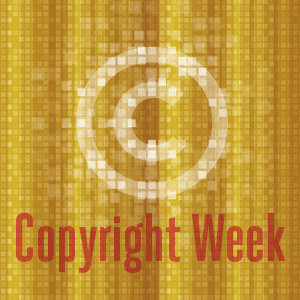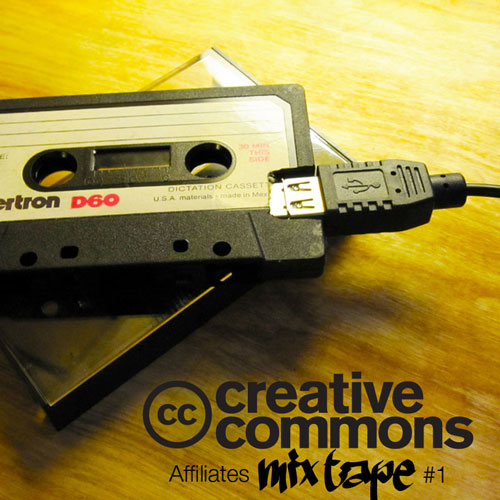
We’re taking part in Copyright Week, a series of actions and discussions supporting key principles that should guide copyright policy. Every day this week, various groups are taking on different elements of the law, and addressing what’s at stake, and what we need to do to make sure that copyright promotes creativity and innovation.
Today’s topic is the “Public Domain.” The public domain is our cultural commons and a public trust. Copyright policy should seek to promote, and not diminish, this crucial resource.
Creative Commons has long upheld that faithful digital reproductions of works in the public domain are also in the public domain, adhering to the U.S. District Court ruling of Bridgeman Art Library v. Corel Corp. that “exact photographic copies of public domain images could not be protected by copyright in the United States because the copies lack originality” 1. Though this ruling is not a binding precedent, it remains highly influential as a legal ruling in the U.S. and elsewhere. Its real world applicability is less well-known. This is why, where possible, we recommend that institutions, especially those curating and providing access to public domain works of cultural heritage, use the CC0 public domain dedication for their digital reproductions where there might be any element of originality that might give rise to doubt.
Creative Commons currently offers two public domain tools, CC0 and the Public Domain Mark, which can be confused with each other but are very different tools. CC0, like the CC licenses, is a legally operable tool backed by a legal document that we like to call the legal code layer of our tools. Because it is legally operable, copyright owners may use it to relinquish their copyright and related rights in a work, effectively placing that work into the public domain. Where it is not legally possible to relinquish copyright, the tool defaults to CC BY without attribution or any other conditions (CC BY is the most liberal license on the spectrum of CC licenses). The Public Domain Mark, on the other hand, is not a legally operable tool, but merely a standard label that one may place on a work to indicate that its copyright has expired or is otherwise in the public domain worldwide. You can read more about both of these tools here.
We recommend using CC0 for digital reproductions of public domain works where there is reason for users to be concerned that the reproduction itself is subject to copyright. If nothing else, it clearly signals to users that the institution is proactively relinquishing any copyrights they may have in a digital reproduction, furthering its mission to provide greater public access to works of cultural heritage. From the institution’s standpoint, they are not making any guarantees about the public domain work itself, but removing any doubt for the user around any element of originality they may have in the digital reproduction.
Here are a few great cases of institutions committed to strengthening and growing our public domain.
Rijksmuseum
The Rijskmuseum is the Dutch National Museum in the The Netherlands, founded in 1800, that contains many of the original artworks of European masters such as Rembrandt and Vermeer, in addition to high resolution images of these original artworks. For 10 years, from 2003-2013, much of the physical museum — including 1 million physical items — was closed for renovations. During this period, the museum’s marketing department pushed for the release of its high resolution images of public domain works in order to keep the public engaged throughout the renovation period and as a way to extend the reach of the museum beyond its limited physical showcase. They released 150,000 high resolution images (each as large as 200 MB) into the public domain using CC0. They abided by the principle of unrestricted access to the digital public domain; as in the U.S., faithful digital reproductions of public domain works are considered public domain in Europe. After the release, the museum saw many benefits, including international exposure for the museum, especially during a time when much of the physical museum was closed; new audiences with developers, designers, and related creative industries; and an increase in revenue made from public domain image sales. For more details, see Tim’s post which links to the in-depth case study.
Statens Museum for Kunst
The Statens Museum for Kunst, aka the National Gallery of Denmark in Copenhagen, joined the Google Art Project in 2011. At this point, they realized they were giving use rights of images to a private company and could no longer justify charging the public for the same rights. As part of a pilot project, they initially released 100 educational videos and 160 high resolution image files (each as large as 440 MB) of Danish, Nordic and European public domain art under CC BY. Afterwards, they moved to CC0 for their images. Since their release, SMK’s images and videos have been featured on Wikipedia. SMK staff found that their understanding of quality and control changed significantly after releasing the images: “[Our public domain collections] don’t belong to us; they belong to the public. Free access ensures that our collections continue to be relevant to users now and in the future. We’re here to look after them and make them available and useful to the public. Use = value.” Read the case study contributed directly by museum staff.
New York Public Library
The New York Public Library has long been the haven of researchers and bibliophiles alike. Map lovers can join the group with NYPL’s open access maps initiative which has digitized and released more than 20,000 digital reproductions of cartographic works in the public domain. In the Lionel Pincus & Princess Firyal Map Division’s own words, “To the extent that some jurisdictions grant NYPL an additional copyright in the digital reproductions of these maps, NYPL is distributing these images under a Creative Commons CC0 1.0 Universal Public Domain Dedication.” In addition to public domain maps, NYPL has also used CC0 to dedicate 1 million of its bibliographic metadata records into the public domain.
Europeana
We want to end the post on Europeana, the digital library for all of Europe and a model for libraries in rights information mark-up. Europeana has identified more than 16.5 million digital objects as being in the public domain (via CC0 or the Public Domain Mark) or under one of the CC licenses, in addition to dedicating 30 million metadata records to the public domain using CC0. Users can browse and search by re-use rights — including all six CC licenses and both public domain tools.
These four cases exemplify only a few institutions that are working to preserve our public domain. For uses of CC0 specific to data, see and add to our wiki page. For more great uses of CC tools and licenses by cultural heritage institutions, check out these slides and add to our wiki page tracking uses by GLAM institutions (Galleries, Libraries, Archives, Museums).
Have a great use case to share about the public domain? Leave us a note in the comments.

